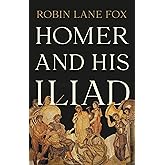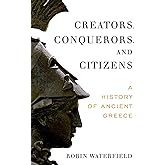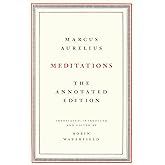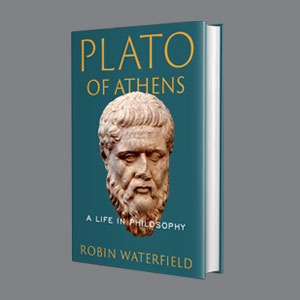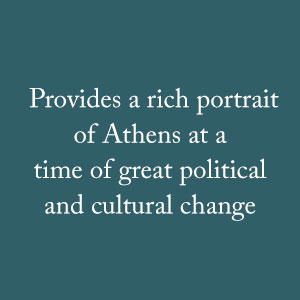
Enjoy fast, free delivery, exclusive deals, and award-winning movies & TV shows with Prime
Try Prime
and start saving today with fast, free delivery
Amazon Prime includes:
Fast, FREE Delivery is available to Prime members. To join, select "Try Amazon Prime and start saving today with Fast, FREE Delivery" below the Add to Cart button.
Amazon Prime members enjoy:- Cardmembers earn 5% Back at Amazon.com with a Prime Credit Card.
- Unlimited Free Two-Day Delivery
- Streaming of thousands of movies and TV shows with limited ads on Prime Video.
- A Kindle book to borrow for free each month - with no due dates
- Listen to over 2 million songs and hundreds of playlists
- Unlimited photo storage with anywhere access
Important: Your credit card will NOT be charged when you start your free trial or if you cancel during the trial period. If you're happy with Amazon Prime, do nothing. At the end of the free trial, your membership will automatically upgrade to a monthly membership.

Download the free Kindle app and start reading Kindle books instantly on your smartphone, tablet, or computer - no Kindle device required.
Read instantly on your browser with Kindle for Web.
Using your mobile phone camera - scan the code below and download the Kindle app.

OK
 Audible sample Sample
Audible sample Sample 


Plato of Athens: A Life in Philosophy Hardcover – May 30, 2023

Explore your book, then jump right back to where you left off with Page Flip.
View high quality images that let you zoom in to take a closer look.
Enjoy features only possible in digital – start reading right away, carry your library with you, adjust the font, create shareable notes and highlights, and more.
Discover additional details about the events, people, and places in your book, with Wikipedia integration.
Purchase options and add-ons
Considered by many to be the most important philosopher ever, Plato was born into a well-to-do family in wartime Athens at the end of the fifth century BCE. In his teens, he honed his intellect by attending lectures from the many thinkers who passed through Athens and toyed with the idea of writing poetry. He finally decided to go into politics, but became disillusioned, especially after the Athenians condemned his teacher, Socrates, to death. Instead, Plato turned to writing and teaching. He began teaching in his twenties and later founded the Academy, the world's first higher-educational research and teaching establishment. Eventually, he returned to practical politics and spent a considerable amount of time and energy trying to create a constitution for Syracuse in Sicily that would reflect and perpetuate some of his political ideals. The attempts failed, and Plato's disappointment can be traced in some of his later political works.
In his lifetime and after, Plato was considered almost divine. Though a measure of his importance, this led to the invention of many tall tales about him-both by those who adored him and his detractors. In this first ever full-length portrait of Plato, Robin Waterfield steers a judicious course among these stories, debunking some while accepting the kernels of truth in others. He explains why Plato chose to write dialogues rather than treatises and gives an overview of the subject matter of all of Plato's books. Clearly and engagingly written throughout, Plato of Athens is the perfect introduction to the man and his work.
- Print length296 pages
- LanguageEnglish
- PublisherOxford University Press
- Publication dateMay 30, 2023
- Dimensions9.5 x 0.95 x 6.45 inches
- ISBN-100197564755
- ISBN-13978-0197564752
The Amazon Book Review
Book recommendations, author interviews, editors' picks, and more. Read it now
Frequently bought together

Similar items that may deliver to you quickly
From the Publisher

|
|
|
|
|---|---|---|
|
|
|
|

Editorial Reviews
Review
About the Author
Product details
- Publisher : Oxford University Press (May 30, 2023)
- Language : English
- Hardcover : 296 pages
- ISBN-10 : 0197564755
- ISBN-13 : 978-0197564752
- Item Weight : 1.14 pounds
- Dimensions : 9.5 x 0.95 x 6.45 inches
- Best Sellers Rank: #46,333 in Books (See Top 100 in Books)
- #22 in Philosopher Biographies
- #31 in Individual Philosophers (Books)
- #101 in Ancient Greek & Roman Philosophy
- Customer Reviews:
About the author

Robin Anthony Herschel Waterfield (born 1952) is a British classical scholar, translator, editor, and writer of children's fiction. Waterfield was born in 1952, and studied Classics at Manchester University, where he achieved a first class degree in 1974. He went on to research ancient Greek philosophy at King's College, Cambridge until 1978, after which he became a lecturer at Newcastle University and then St Andrews University. He later became a copy-editor and later a commissioning editor for Penguin Books. He is now a self-employed writer, living in southern Greece, where he has Greek citizenship.
Bio from Wikipedia, the free encyclopedia.
Customer reviews
Customer Reviews, including Product Star Ratings help customers to learn more about the product and decide whether it is the right product for them.
To calculate the overall star rating and percentage breakdown by star, we don’t use a simple average. Instead, our system considers things like how recent a review is and if the reviewer bought the item on Amazon. It also analyzed reviews to verify trustworthiness.
Learn more how customers reviews work on Amazon-
Top reviews
Top reviews from the United States
There was a problem filtering reviews right now. Please try again later.
Plato's failed attempt to create a new polity in Syracuse, Sicily especially interested me, given a recent proposal that in Alexandria circa 273-272 Plato-inspired agents first composed the five books of Torah, which I consider to be nonsense.
RW well knows and details that Plato was influenced by earlier writers. He quotes Isaac Newton saying he himself stood on the shoulders of giants. (Oddly, Newton is not in the index.) Newton, in turn, consciously or not, and not mentioned in the book, repeated what Bernard of Chartres had written. Bernard, don't you know, was a Platonist!
This on top of the fact that Plato intentionally removed himself from his dialogues, placing the emphasis instead on active reader engagement with the philosophical ideas themselves. We could rightfully ask: If biographical details were unimportant to Plato, then why should they be important to us? Especially considering that Plato’s reputed travels to Egypt and elsewhere—the most exciting part of his biography—probably didn’t even happen.
This is all to say, don’t expect the most riveting biography you’ve ever read. But if you have an interest in philosophy, and ancient philosophy or Plato in particular, you’ll probably enjoy learning everything there is to know about the life of philosophy’s most famous practitioner. And Waterfield’s book will give you more than sufficient background to jump directly into Plato’s dialogues themselves.
The most interesting parts of the book cover the development of Plato’s dialogues and ideas. For example, Waterfield notes that the story of the Oracle proclaiming Socrates to be the wisest man in Athens—which Plato says launched Socrates on his Socratic mission of questioning others—is almost certainly false, because Socrates could have only been considered wise by the Oracle in the first place because he had already been engaging people in Socratic questioning. Plato is simply dramatizing the context by which he wants posterity to remember the wisdom and teachings of Socrates.
Another key takeaway is that Plato’s philosophy was anti-dogmatic in character (this was important for the subsequent development of Western philosophy). It’s telling that Plato’s most prominent followers, including his successor as head of the Academy, Speusippus, ultimately disagreed with Plato’s core doctrines. This fact signifies that the point of the Academy was not the unchanging proliferation of Plato’s ideas, but rather critical engagement and progress in philosophical research questions. In our current environment of shallow and closed-minded thinking, there are few lessons that could be more well-received.
Gary T. Kleemann
Top reviews from other countries
But Robin Waterfield has gathered his knowledge of over 40 years of researching Plato to deliver what will probably become THE ultimate biography of Plato for many years to come.
This is by Robin Waterfield, an independent scholar and translator who lives in southern Greece. It is a revelation. Socrates, Plato and the many dialogues he wrote about Socrates is an intellectual achievement beyond any other. Newton’s Principia Mathematica and Einstein’s papers are rightly celebrated as historic advances that changed our understanding of the world. War and Peace, Middlemarch and Barchester Towers are works of literature that will be read and loved as long there are readers to enjoy them.
But, without Socrates, Plato was nothing. Socrates would not have been put to death by the fledgling Athenian democracy (in 399 BCE), an act of barbarism by the ruling 400, in spite of Socrates’ brilliant defence of his position. He was accused of offending the gods and corrupting the young. The men who brought the charges were put up to it by superior people who had argued with Socrates in the Agora and been shown up to be ignorant by comparison. Yet Socrates never set himself above other men. He was humble and polite and would ask questions of ‘the great man’, often a sophist, a professional teacher who would define words like justice, goodness, the meaning of life, the best form of government, how to be a good ruler, have we free will?… only to find that under the polite questioning of this little bearded, old man the analysis (a process known as the elenchus) would lead to the conclusion that the sophist did not know what he was talking about.
Socrates was a relatively poor man, compared to Plato, about forty years older but he taught Plato and anyone else who would listen (in the market place of Athens or anywhere else suitable at the time) and people were captivated. Self-confident men would hear of Socrates and come to argue with him. Socrates knew that the young Athenian democracy had much to learn and understand. He hoped to be able to encourage the production of experts who would know how to govern. What was fundamental in a ruler was goodness, though a definition was not easily found. The same for ‘justice’: how could it be provided if the meaning was unclear? And what was the aim? Knowledge, but what were the means of acquiring it and using it to advantage? What was knowledge? What was the best form of government? Socrates is probably the originator of most of these ideas, though they were developed further by Plato in his many dialogues. These are a celebration of Socrates by Plato, who accords himself the character of the storyteller, content to be the writer and a very persuasive one who holds the attention of the reader effortlessly. Twenty-six dialogues survive, Socrates being chief mover in them, a fitting tribute to a man Plato would have revered above every other man.
After the death of Socrates, Plato used his wealth to buy a plot of ground (The Academy Park) which became The Academy, the first university in the world. It was a place anyone could enter (anyone, who had studied geometry, at least) and fees were not charged. The main teaching method was conversation. There were lectures at times, some given by Plato himself or Aristotle or another of the scholars who attended. There would have been no salaries: the love of knowledge would be taken to be enough. Yet, if money was needed, it would be found by some student, a relative or Plato himself. And there was expense at times when they all dined together, say, and even drank wine. People would talk in groups or walk the tree-lined paths, discussing, questioning, theorising, ever sceptical, even of beliefs held in common. There were a few other schools run mostly by Sophists for fees that had to be paid. But the Academy was peculiar in ways that are unique. Plato exercised no special authority though he was the nominal leader by virtue of his genius which is obvious even today. Aristotle attended for twenty years without quibble or, as far as we know any sharp disagreement, though they had different ideas of god and probably preferred one god to the many custom demanded they respect, as Socrates did. Aristotle eventually founded his own university, The Lyceum, close by, and wrote 150 books of investigation mainly, including Politics, of which around 30 survive.
What we see in the above is the pattern set by Plato, based on the life of Socrates, of every department of philosophy in the world of today. Plato’s books are the first books on the subject. Every other book of philosophy since then has been derivative in some way, for Plato’s dialogues are the first. That is why Alfred North Whitehead, collaborator of Bertrand Russell in their Principia, which attempted to set mathematics on a sure foundation c1910, said that ‘The safest general characterisation of the European Philosophy is that it consists of footnotes to Plato.’
This is a remarkable statement which I have known for half a century but I see that its real import is not what I imagined when I taught philosophy to sixth formers at George Watson’s College, Edinburgh. My own mentor was Richard Hamilton who after a first in English at Edinburgh attended Magdalen College, Oxford, at which, I feel certain, he would have been reading philosophy (perhaps at the feet of C.S. Lewis who was a fellow there and a philosopher), for it was a passion and that was the time for him to absorb it. I was fortunate to meet Richard as a tutor and friend and I was greatly influenced by him. But, I now think, that Richard had not plumbed the depths of meaning of Whitehead’s insight, even though we were both greatly enamoured of Plato’s dialogues, especially Republic, the natural place for any student of philosophy to begin.
Robin Waterfield’s book on Plato has made the difference, for he has read, studied closely and translated most of the surviving dialogues of Plato. That is where his understanding of the assumptions, and processes that underlay The Academy have come from. The actions of the fifty or so scholars and students at The Academy, the free, flowing, polite, discussions, conversation being the heart of The Academy, without any oppressive, over-riding authority, are unique. There would be no examinations of course. There will not be another philosophy department like that anywhere in the world. And that a mind like Aristotle’s could disagree with Plato for twenty years before he went off to start his own school, shows how free was every mind there present to decide for itself what was true. It is quite extraordinary that a man, Plato, in the 4th century BCE could set up a university like that which has been the model for every philosopher ever since; and that all the others through the ages have fallen short of Plato’s ideals, and could be far better if they reverted to what The Academy was originally, making, for example, conversation and not lectures the main item of importance. Even then, two thousand five hundred years ago, they realised that lectures can be misunderstood, confusing (if the speaker is not an intellectual star), can be slept through, or even of no interest. But conversation is different. It is necessary to engage and the questions and answers develop the very soul of the student or the conversing scholar. What the philosopher or the student of philosophy seeks is the meaning of what it is to be a good person, a better person than one is. That is the key to educating a politician, a man fit to rule a people. How very far away we are today, at this moment in our grasp of that ambition, when we have in Donald Trump and Boris Johnson, the two most selfish people on the planet, desperate to rule their countries but without a scrap of the intellect, insight, decency or understanding of their fellow men, to be of any value whatever. Both are serial liars who cannot be expected to be anything else. That is a better measure today of what Plato has given us and that there is so much to overcome even yet. The education of our guardians ought to have been for every one of these two thousand five hundred years, the prime concern of all humanity. Alas, we see that two and a half thousand years of human progress has not advanced beyond Trump and Johnson. How awful! These should have been educated by Plato, and his multitude of successors, out of any possible consideration as rulers. Of course they are sustained by people utterly ignorant of philosophy. That is the reason.
Why did Richard not get this? Why did he not see that Plato’s dialogues are the source of all the questions and their answers that intelligent minds are full of? Because it was eighty years ago and he left Magdalen College after a year or so. He would not have read all the dialogues in that time. I have only read half or less myself. Scholarship has advanced in the years since. The Dialogues have been read, absorbed and studied by far more people by now. Robin Waterfield is one of them.
Notice that Plato did very actively try to perform a good noble action on behalf of other people than Athenians. His fame as a scholar, thinker and philosopher was considerable in the Mediterranean, so Robin believes. Thus he was invited by Dionysius II, Ruler of Syracuse, the grandest city state at that time, to visit and teach him some philosophy, this new ‘knowledge’ that everyone was talking about and was being promoted at The Academy. Because Dionysius was a tyrant, this was especially attractive to Plato. One of his students was Dion, a nephew of the Tyrant and this helped. Plato would have paid his own passage to Syracuse, taking whatever routes were available in the 4th century BCE. The effort failed, though Plato returned to Syracuse on two other occasions for lengthy periods (a trireme sent for him on one occasion). The Tyrant was completely without scruple, went so far as to steal all Dion’s money, property and valuables, leaving him destitute. That was the key to what Plato all his life was interested in achieving: the development of very good men capable of ruling. Dion did overcome this for a time and become the next king after Dionysius. But he was murdered by two Syracusans, who probably preferred the Tyranny to the democracy Plato tried to advance because the adjustment to this new thinking was too much for them to accommodate.
As Robin says (pxxiii) ‘Plato launched philosophical investigation’ and it has hardly advanced in two and a half thousand years. But its effect on what there is now is immense. That is an astounding achievement. And it will not stop here. Nothing else in human affairs has had such power for good
©William W.C. Scott. 12th June 2023










